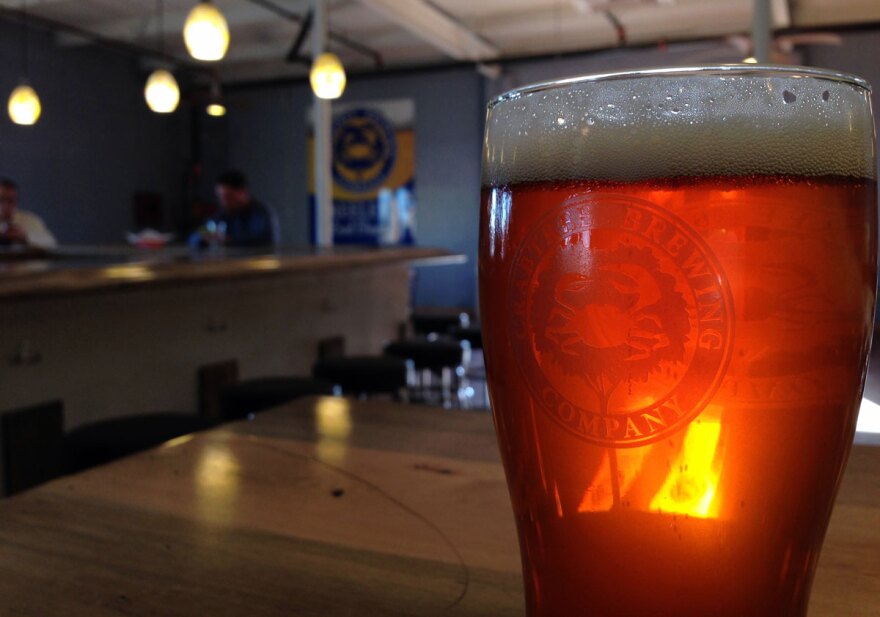The number of breweries operating in the U.S. is at its highest level since the 1880’s. Consider that a testimony to the ever growing popularity of craft brews.
Still some wonder, is the glass half-full or half-empty?

Craft brewing is responsible for pouring millions of dollars into Colorado’s economy. Local stalwarts like New Belgium Brewing are even expanding out of state now.
A 2012 University of Colorado Leeds School of Business study says Colorado is home to the fastest growing beer market in the country. The Front Range is the largest craft brewing market in the U.S. with 74 breweries in operation as of August 2012.
With that said, Michael Ehler, broker and partner of RealTec Commercial Real Estate Service in Fort Collins says things may be coming to a head.
“What I’m being told, anecdotally, is that we’re nearing saturation.” Ehler says there may be new areas like Greeley that could handle the growing niche market, “but I think it’s a point where a lot of due diligence will have to be performed to see what the market is, and how many more can we really support.”
Six years ago when Greeley’s Crabtree Brewing opened, the market was focused on bottling and selling beer directly to local distributors. Not on tap rooms.
“When you walk into a liquor store and you grab a six pack off the shelf, consumers have no idea how much money it took just to get that six pack to that shelf and how much money it continues to take,” says Jeff Crabtree.
For Crabtree, a former economist and the owner of Crabtree Brewing, deciding to expand was simply a business necessity.
“Traditional lending, personal investment, private investment…if you can get over those first financial hurdles, you can open up a tap room and make quality beer with minimal staff. And as long as your location is great, it’s the new coffee shop for beer drinkers.”
The coffee analogy is something Daniel Bradford, publisher of All About Beer Magazine can agree with. “In Boulder there are how many coffee shops? How many medical marijuana places in Boulder? So how can we talk about saturation with beer bars?”
Brewers will continue to find a way to sell their beer. Bradford says the craft beer industry is such a close knit community, there’s little reason it shouldn’t continue to grow and mature without risk of saturation and over competition.
“All these breweries they huddle together, they get together as much as possible, they share notes. And the ones that view this as serious hardcore competition, they’re just not around.”
Jeff Crabtree agrees, to a point. He says there's plenty of demand for breweries in Northern Colorado but it takes more than being part of the close knit beer community to make it in the brewing business.
“A lot of home brewers are making a lot of good stuff. If you have the business mind to go behind it…just being able to make beer…in economics you can make a widget. But if you can’t sell it, you’re not going to survive.”
While 2012 numbers have yet to be released, in 2011, the craft brewing industry overall grew 13 percent by volume, with over 11 million barrels of beer sold.
In Colorado, the entire beer industry’s economic impact to the state is estimated to be in excess of $18 billion [.pdf]. Even though it’s still a relatively small cut of the overall beer market, experts say new craft breweries should have no trouble finding - or meeting demand.








